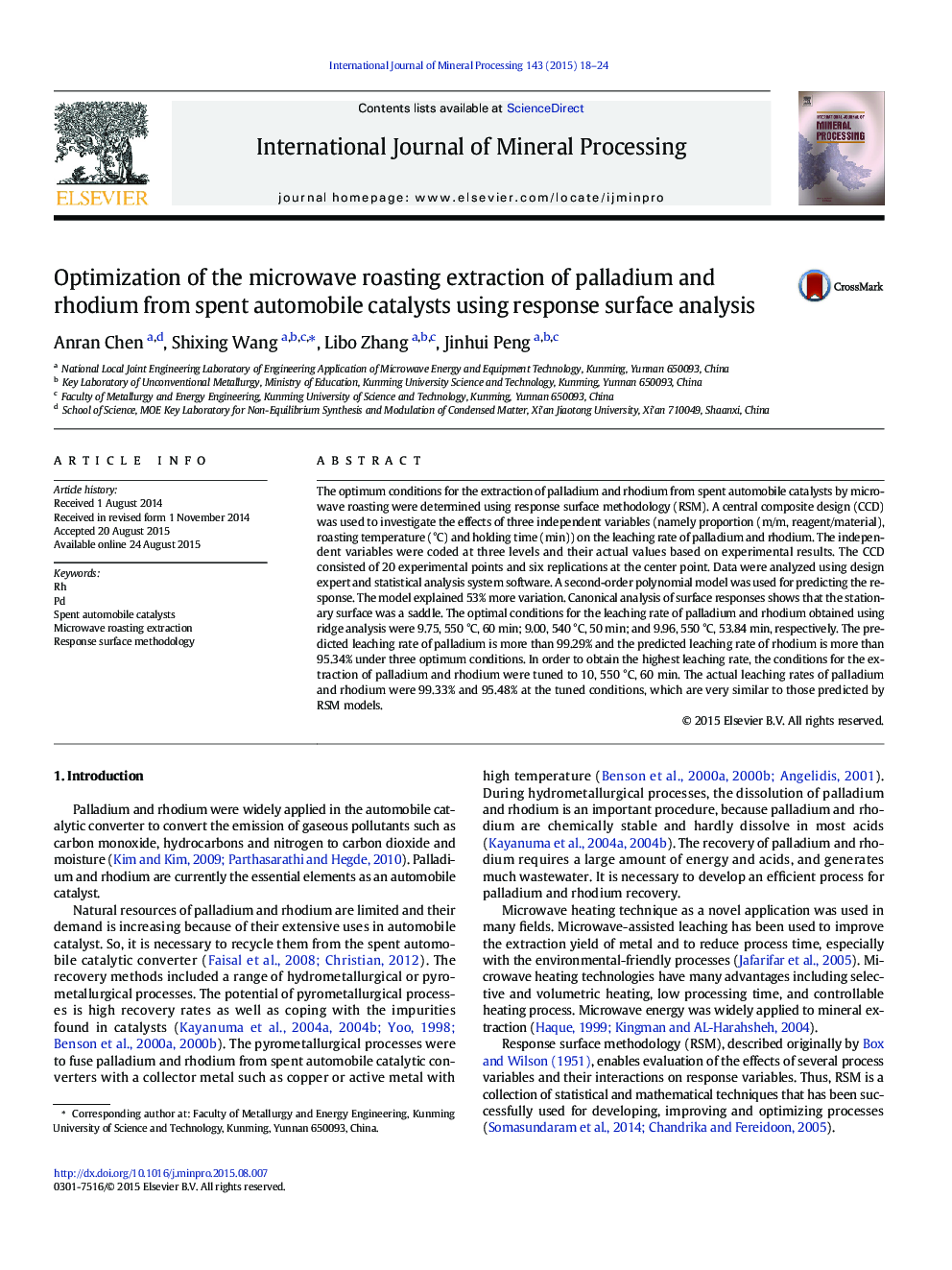| Article ID | Journal | Published Year | Pages | File Type |
|---|---|---|---|---|
| 213753 | International Journal of Mineral Processing | 2015 | 7 Pages |
•Palladium and rhodium were extracted from spent automobile catalysts by microwave roasting.•Optimum condition for the extraction of palladium and rhodium has been established.•The combined effects of processing parameters were studied using RSM.•The extraction rates of palladium and rhodium from RSM were 99.33% and 95.48%, respectively.
The optimum conditions for the extraction of palladium and rhodium from spent automobile catalysts by microwave roasting were determined using response surface methodology (RSM). A central composite design (CCD) was used to investigate the effects of three independent variables (namely proportion (m/m, reagent/material), roasting temperature (°C) and holding time (min)) on the leaching rate of palladium and rhodium. The independent variables were coded at three levels and their actual values based on experimental results. The CCD consisted of 20 experimental points and six replications at the center point. Data were analyzed using design expert and statistical analysis system software. A second-order polynomial model was used for predicting the response. The model explained 53% more variation. Canonical analysis of surface responses shows that the stationary surface was a saddle. The optimal conditions for the leaching rate of palladium and rhodium obtained using ridge analysis were 9.75, 550 °C, 60 min; 9.00, 540 °C, 50 min; and 9.96, 550 °C, 53.84 min, respectively. The predicted leaching rate of palladium is more than 99.29% and the predicted leaching rate of rhodium is more than 95.34% under three optimum conditions. In order to obtain the highest leaching rate, the conditions for the extraction of palladium and rhodium were tuned to 10, 550 °C, 60 min. The actual leaching rates of palladium and rhodium were 99.33% and 95.48% at the tuned conditions, which are very similar to those predicted by RSM models.
